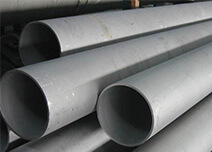- SITEMAP
- CONTACT US
- 8618267732328
News
Credibility ,the lifeblood of enterprise!
- Fittings
- Butt Welding Fittings
- Forged Fittings
- 180 Degree Elbows
- 90 Degree Elbows
- 60 Degree Elbows
- 45 Degree Elbows
- 30 Degree Elbows
- Equal Tee
- Reducing Tee
- Concentric Reducer
- Eccentric Reducer
- Lap Joint Stub End
- Outlets
- Cap
- Bend
- Cross
- Coupling
- Stainless Steel Lateral Tee
- Bellows Expansion Joints
- Flexible Metal Hose
- Non-Standard/Custom Fittings
- Bleed & Flushing Rings
- Types of Flanges
- Anchor Flanges
- Blind Flanges
- Expander Flanges
- High Hub Flanges
- Lap Joint Flanges
- Long Weld Neck Flanges
- Nipoflanges
- Orifice Flanges
- Plate Flanges
- Ring Type Joint Flanges
- Reducing Flanges
- Slip On Flanges
- Socket Weld Flanges
- Spectacle Blind Flanges
- Square Flanges
- Spades & Ring Spacers
- Threaded Flanges
- Welding Neck Flanges
Martensitic and precipitation hardening stainless steel grades by yaang.com
Martensitic and precipitation hardening stainless steels are heat treatable and can therefore provide hardness and strength in a wide range. Allowing to workability they are supplied in solution annealed condition. The downstream manufacturer performs final heat treatment to meet the mechanical properties required.
Martensitic grades are basically Fe-Cr alloys with a higher carbon content than ferritics which enables them to harden on cooling in air, oil or water. Depending on grade and intended use, ductility is improved by tempering.
Typical applications for martensitic grades:
- cutting utensils
- surgical and dental instruments
- fasteners, springs and ball bearings
- press plates
- steam and gas stainless steel tubes
Precipitation hardening grades have higher alloying contents than martensitic grades. They contain nickel, and in order to achieve hardening by aging additions of copper, aluminium, titanium, niobium and molybdenum. Depending on chemical composition their microstructure after final heat treatment is austenitic, semi-austenitic or martensitic.
Typical applications for precipitation hardening grades:
- retaining rings, spring holders, springs
- chains, valves and gears
- aircraft parts
- pressure vessels and stainless steel tubes
Grade properties
High strength and hardness distinguish martensitic stainless steels from the other stainless steel families. After austenitizing cooling is performed in air, water or oil, depending on steel grade. If the intended application requires a high level of hardness (e.g. knives, HRC55), only stress relief annealing will be performed. Normally martensitic stainless steels are tempered in order to acquire useful mechanical properties, i.e. a certain level of toughness (A5 ≥ 15 %).
Nickel-martensitic steels are superior to traditional martensitic grades regarding strength in combination with toughness. Their microstructure contains stable austenite after hardening and tempering which accounts for good toughness without drawbacks concerning corrosion resistance.
Precipitation hardening stainless steels provide remarkable levels of high strength and hardness in a very wide range. With the exception of the martensitic alloys (e.g. 1.4542) cold formability is satisfactory.
Weldability
Traditional martensitic steels with a carbon content > 0.20 % are difficult to weld; assistance is advised. The hardenable high-carbon grades are not suitable for welding.
Low-carbon nickel-martensitic grades have relatively good weldability.
Welding of precipitation hardened grades is possible, but depending on grade some limitations might have to be regarded.
Corrosion resistance
Corrosion resistance of precipitation hardening steels is higher compared with heat treatable martensitic stainless steels ranking between ferritic Cr and austenitic CrNi steels.

Tel No:+86-18267732328 / Email:[email protected]
Address:Longwan District, Wenzhou, Zhejiang Province, China.
Copyright Notice © www.yaang.com Yaang Pipe Industry Co., Limited All rights reserved.
Yaang Pipe Industry Co., Ltd. is an international supplier of piping solutions for flange, butt welding fittings, socket welding fittings and threaded fittings. Our products are widely used in different industrial fields, including oil and gas, chemical industry, petrochemical industry, power plant, pulp and paper industry, environmental and water conservancy engineering, engineering projects, etc.





